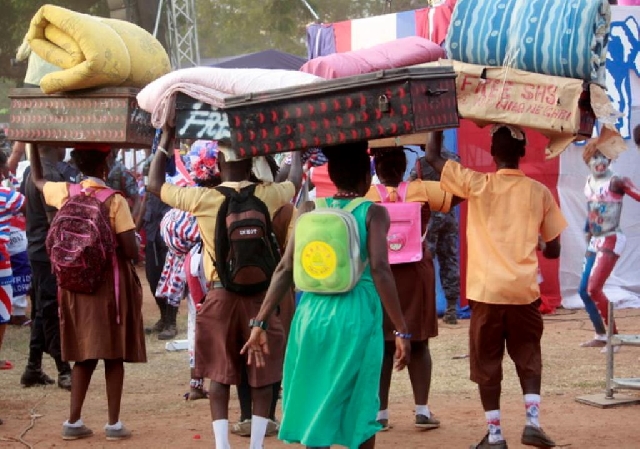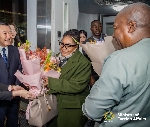Ghanaians supportive of continuing free SHS initiative with 85 per cent backing its extension – Afrobarometer report
 Free SHS
Free SHS
A recent survey has revealed that unemployment is now the primary concern for Ghanaians, with 41 per cent of respondents urging the government to prioritise job creation.
Infrastructure and road development are also critical issues, cited by 38 per cent of Ghanaians, while healthcare remains a pressing need for 33 per cent.
These findings reflect a public demand for targeted improvements in essential services and economic opportunities to alleviate growing hardship nationwide.
Economic pressures have intensified markedly over the past year. A staggering 82 per cent of respondents reported experiencing poverty at some level, with 45 per cent indicating that they face moderate to severe financial strain up significantly from 2017, when only 19 per cent reported similar challenges.
This economic downturn has led to widespread resource shortages, as seven in ten citizens reported going without cash income at least once in the past year.
Essential needs are increasingly difficult to meet, with 54 per cent of respondents struggling to access medical care, 44 per reporting water shortages, another 44 per cent experiencing food shortages, and 42 per cent having trouble securing cooking fuel.
As Ghana moves closer to the 2024 elections, optimism about the country’s economic direction is waning. Less than half (45 per cent) of Ghanaians are hopeful for economic improvements in the coming year, while the government’s economic performance ratings continue to drop amid public dissatisfaction with policies seen as inadequate to address rising living costs and access to basic services.
A new Afrobarometer survey highlights that citizens are not only seeking urgent action on unemployment, infrastructure, and healthcare but are also voicing strong support for key government programmes, with calls to end others.
The survey reveals that Ghanaians are particularly supportive of continuing the Free Senior High School initiative, with 85 per cent backing its extension.
The Planting for Food and Jobs programme enjoys similar popularity at 81 per cent, followed by the One District One Factory initiative (71 per cent) and the One Village One Dam policy (60 per cent).
However, the report also highlights a significant call for policy adjustments, with 79 per cent of respondents opposing the electronic transactions levy (E-levy) and advocating for its discontinuation.
This opposition reflects public dissatisfaction with policies perceived to intensify economic burdens amid already high costs of living.
Source: classfmonline.com
Trending News

JICA donates 30 motorbikes to boost agricultural extension services in Ghana
16:09
Bawumia kickstarts nationwide campaign on Wednesday, October 15, 2025
14:14
'Our MCE wrongfully issued a mining permit to galamseyers' – Royal Family in Tano North asserts
13:46
Vice President engages Ghanaian community in Belgium
00:39
Prof. Kwame Akyeampong to launch book on education reform in Africa
13:36
Ghana rolls out HPV vaccine to combat cervical cancer, targeting 2.5 million girls
11:36
Bryan Acheampong calls for 90-day moratorium on mining to restore Ghana’s water bodies
15:41
NHIA trains Greater Accra staff on revised financial manual to strengthen accountability and efficiency
14:05
Royal Family at Tano North accuses MCE of wrongful issuance of mining permit to galamseyers
13:37
President Mahama arrives in China for high-level state visit to deepen Ghana–China relations
00:26




